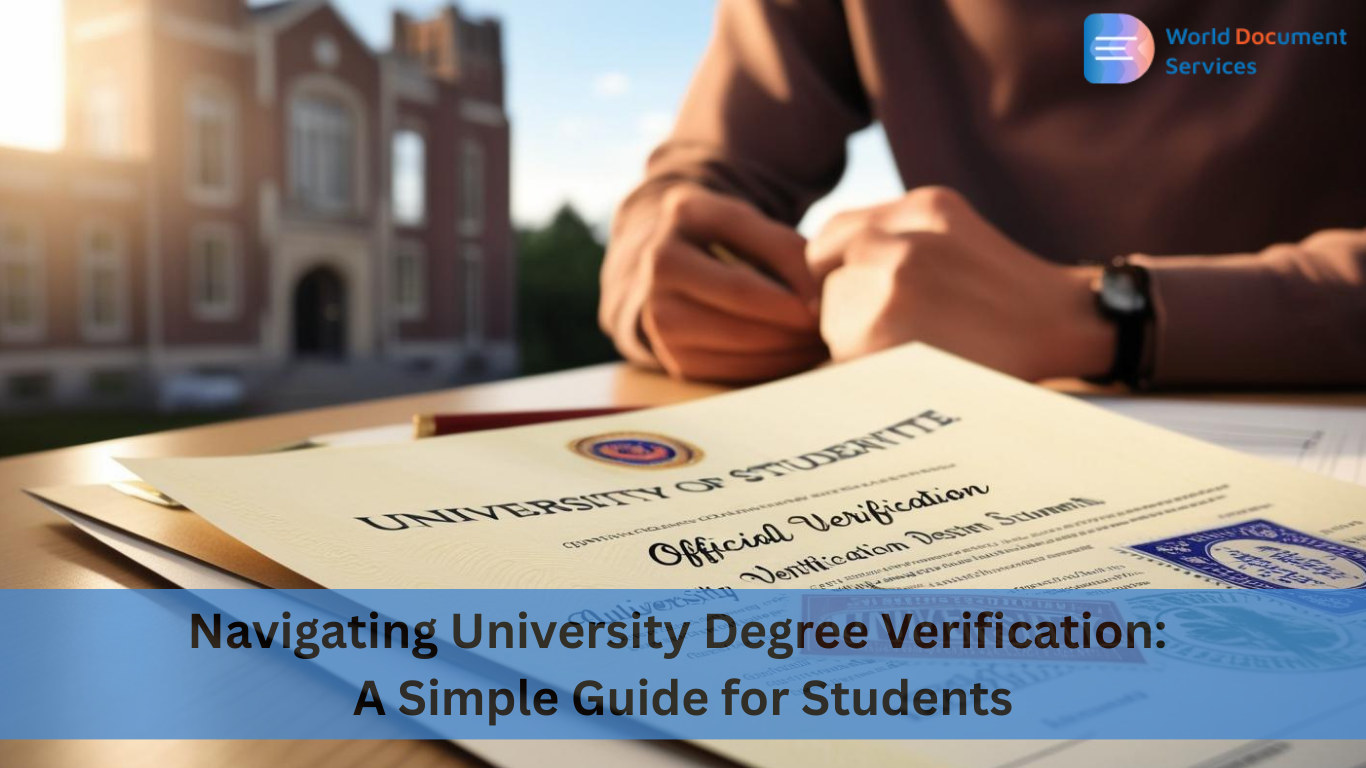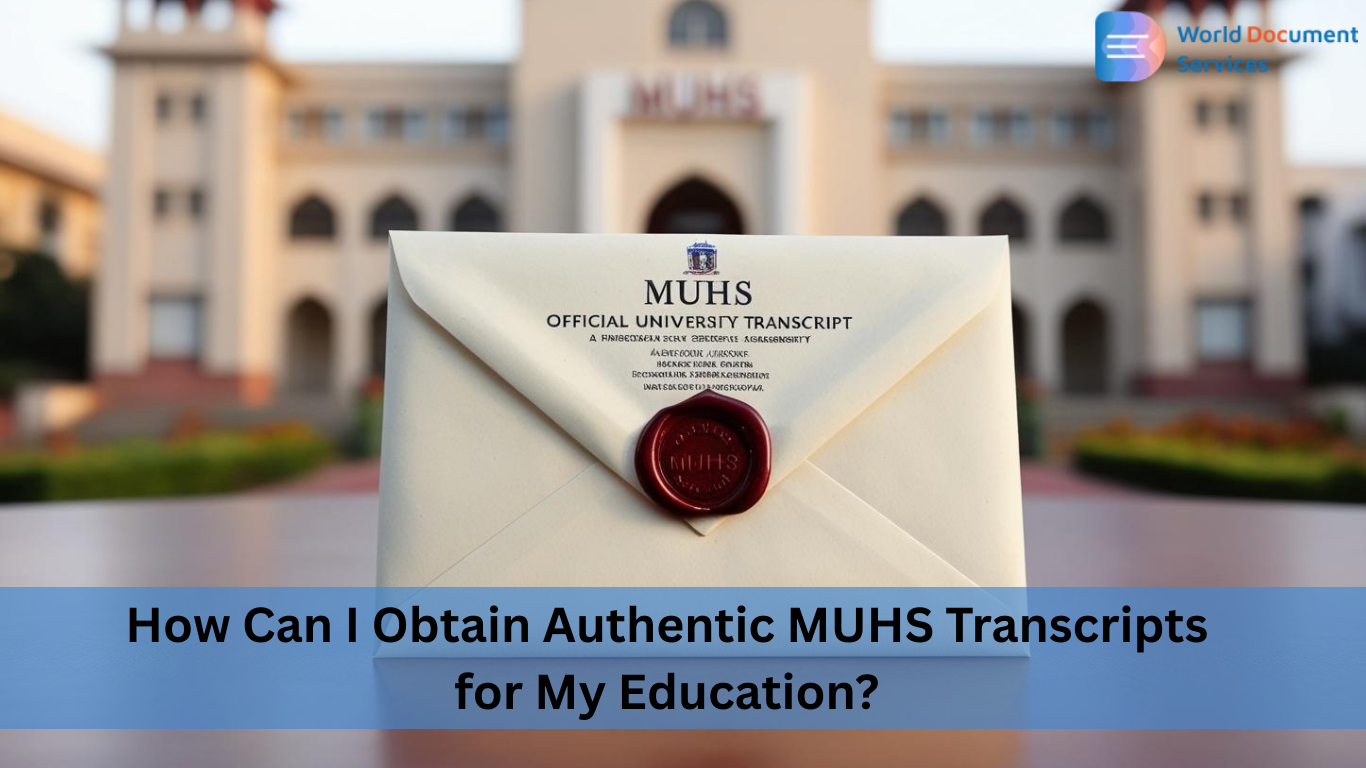
In the global academic and professional spheres today, credential verification is more than just a formality; it’s a necessity. It doesn’t matter whether you’re applying for postgraduate studies overseas, applying for a government job, or moving to another country to accept a job offer; university degree verification is a fundamental way of demonstrating your academic legitimacy.
This guide is meant to support you in understanding the degree verification process, explain the criticality of verification of academic credentials, and demonstrate ways to expedite the verification process using online degree verification solutions. When you finish reading this, you’ll know what you are looking for, how to complete it quickly and efficiently, and how to avoid many of the common mistakes that delay or stagnate thousands of students from degrees each year.
What is university degree verification?
University degree verification is a formal process in which the educational institution authenticates a student’s degree or academic record; the rate at which verification occurs can vary. Verification can include authentication of a degree certificate, mark sheets, and all supporting documents issued by a university. Most verification comes from employers, embassies, verification agencies, or other educational institutions.
Why is it important?
In the digital age and competitive market, there are many fake degrees and fake educational records. Institutions and employers want to ensure that the documents you present are legitimate and issued by a certified entity.
Understanding the Degree Verification Process
The degree verification process generally follows these core steps:
- Submission of Application: Students or third parties (like verification agencies) must submit a formal request to the university along with the necessary documents.
- Document Review: The university examines the submitted credentials to ensure they match their official records.
- Authentication and Endorsement: If verified, the university stamps or seals the document as “Verified” or provides a formal verification letter.
- Dispatch or Upload: In some cases, these documents are physically couriered to the requesting authority. Increasingly, however, this is done through degree certificate verification online portals.
This process can vary depending on the country, university, and the nature of the document.
Shift Towards Online Degree Verification
Many institutions and countries have shifted to online degree verification systems. These platforms allow students, alumni, and verification agencies to access secure databases that confirm educational records in real-time.
Some prominent platforms include
- National Academic Depository (NAD) in India
- DigiLocker Integration for University Certificates
- Student Clearinghouse in the United States
- WES (World Education Services) for international credential evaluation
- In-house university document verification portals are managed directly by institutions.
Benefits of degree certificate verification online include
- Faster turnaround time
- Digital and paperless transactions
- Reduced risk of lost or forged documents
- Secure access control
- Compliance with global verification standards
If your university is not yet online, you’ll need to rely on traditional manual processes.
What is Academic Credential Verification?
Academic credential verification is a broader term that includes verifying not just your degree certificate but also the following:
- Transcript/Marksheet Verification
- Course completion certificates
- Medium of Instruction (MOI) letters
- Provisional degrees
- Revaluation letters (if applicable)
- And any academic documentation tied to your credentials
This step is vital when you’re planning to study or work abroad, especially in countries like Canada, the U.S., Australia, and Germany, which require credential equivalency evaluations.
How to Initiate University Document Verification
Follow these best practices to ensure smooth university document verification:
- Know the Requirement: Understand whether the end institution requires original verified documents, soft copies, or attested versions.
- Prepare Your Documents: Keep your degree, marksheets, ID proofs, passport copies, and application forms handy.
- Use Official Channels: Always request verification through your university’s registrar’s office or official website. Avoid third-party agents unless they are officially authorized.
- Track Your Application: If online portals are available, use tracking features. If not, maintain communication via email or phone with university personnel.
- Pay the Fees Promptly: Some universities charge a nominal fee for processing verifications or couriering documents abroad. Ensure you make timely payments to avoid delays.
Common Pitfalls to Avoid
- Incomplete Applications: Even a single missing document can delay the process.
- Wrong Authority Contacted: Always verify the designated contact point at your university.
- Procrastination: Initiate the verification process at least 1-2 months before your deadline.
- Not Cross-Checking the Format Required by the End-User: Some embassies or companies require sealed envelopes; others demand digital signatures.
Conclusion:
In the digital age, university degree verification is more accessible yet more critical than ever. Whether you’re dealing with academic credential verification for international study or online degree verification for employment purposes, a well-prepared and strategic approach can save you time, money, and unnecessary stress.
Always stay informed about your university’s verification mechanisms. And most importantly, treat your academic documents with the same level of seriousness as your passport or visa. They are your educational identity in the global marketplace.
Frequently Asked Questions (FAQs)
Q: How long does the university degree verification process take?
A: Typically, 10 to 30 working days, depending on the university and mode (manual or online). Delays are common during peak academic seasons.
Q: Can I verify my degree online if I graduated several years ago?
A: Yes, many universities offer online degree verification, even for alumni. However, you may need to update your student profile or contact the registrar.
Q: Is notarization the same as academic credential verification?
A: No. Notarization only confirms your identity and the authenticity of the document copy, not the academic content or issuance by the university.
Q: Can I send verified documents directly to a third-party institution, or does the university need to send them?
A: It depends. For most embassy or credential evaluation agencies, the documents must be sent directly by the university in a sealed envelope or secure digital channel.
Q: What if my university doesn’t offer online verification?
A: In such cases, you’ll need to go through manual routes—submitting physical copies and using postal services or authorized agents recognized by the university.










 Call Us
Call Us Mail Us
Mail Us WhatsApp
WhatsApp
